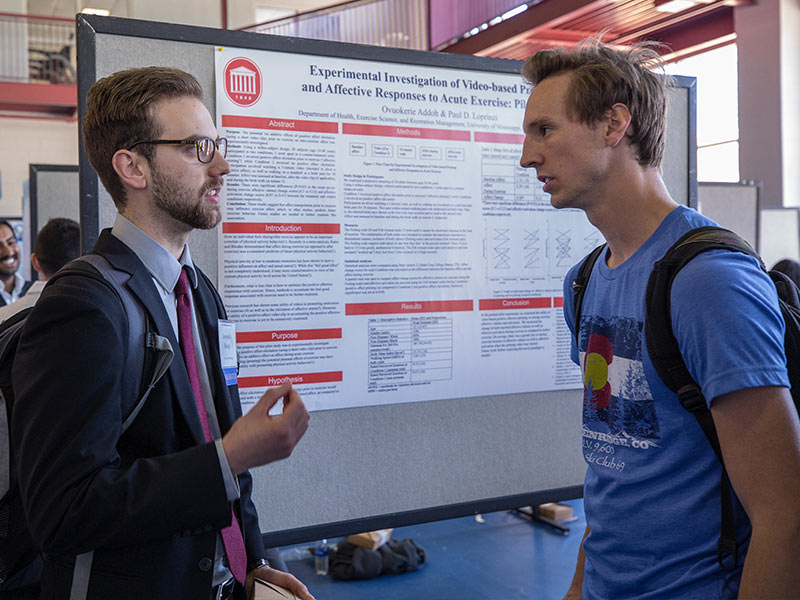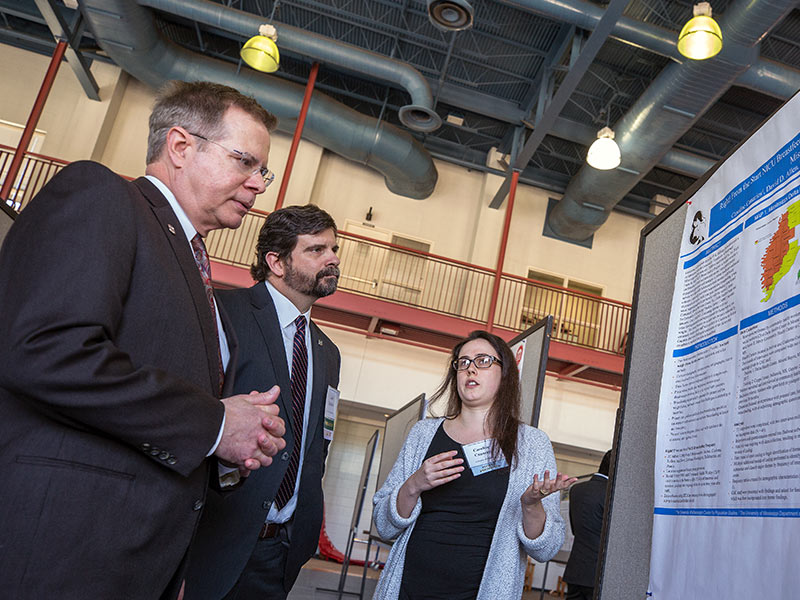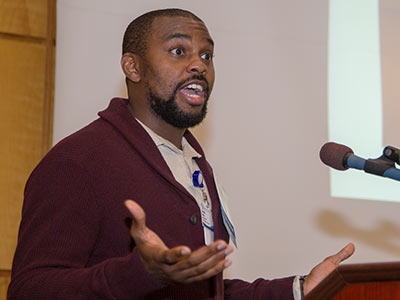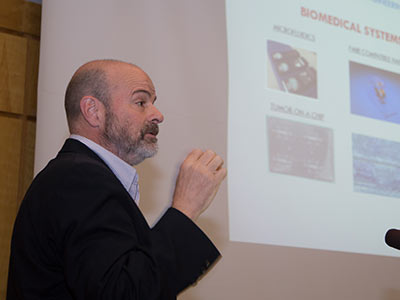Dual campus Research Day fosters collaborative science

Members of the Jackson and Oxford research communities gathered for the fourth annual UM/UMMC Research Day, held April 4 in the Norman C. Nelson Student Union at the University of Mississippi Medical Center.
Research Day, held in alternating years at University of Mississippi and Medical Center campuses, is an opportunity for members of the university community to learn more about the scientific and scholarly research being conducted at the both campuses. More than 150 attendees learned about the work of more than 80 faculty, administrators and trainees ranging from artificial neural networks to health in Zambia.
“Research is the glue that holds our university’s missions together,” said Dr. Richard Summers, UMMC associate vice chancellor for research. Without the new knowledge generated by research, advances in education, health care and service would stall.
“The future is in our hands,” Summers said.
“I cannot overstate my confidence that we as an institution will continue to grow,” said UM Chancellor Dr. Jeffrey Vitter.

The day’s presentations took the form of three-minute lectures, poster sessions and keynote addresses. Some presenters discussed their resources and results, inviting new partners to join in their work.
“How can we more actively treat patients as opposed to seeing them in a doctor’s office every three to six months?” asked Kourtland Adams, nurse manager for the UMMC Center of Telehealth. His lecture discussed the potential of remote patient monitoring for managing chronic health conditions.

After providing patients in Sunflower County with digital monitors for daily check-ins, Telehealth’s diabetes project observed a decreased HbA1c after three months, he said.
Others arrived at Research Day with explicit requests for help.
“I came here looking for a medical physicist, and my presentation happens to follow one,” said Dr. Dwight Waddell, UM associate professor of electrical engineering.
Waddell, director of the new undergraduate biomedical engineering program, shared his “first-world” problem: lots of qualified students, not enough research opportunities for them at Oxford alone. What better place to find potential mentors than the Medical Center, he said.

This year’s Research Day also included a forum on the Flagship Constellations, an initiative formalized in November 2017 to cluster research teams around broad challenges. Co-leaders from the Big Data, Brain Wellness, Community Wellbeing and Disaster Resilience constellations updated attendees on plans for cross-disciplinary work.
Nowadays, research requires this kind of collaborative approach. The image of a solo scientist bent over a lab bench is faded and outdated.
“One thing we have learned about research is that no man or woman is an island,” Summers said. “We need to leverage our strengths to make progress.”
“There’s no more low-hanging fruit in research,” said Dr. Josh Gladden, UM vice chancellor for research. “We are now looking at complex, multidimensional problems that require a multidisciplinary approach.”
Gladden illustrated the importance of forums like Research Day with a story about a meeting between UMMC clinicians and UM acoustic researchers that occurred a few years ago. He saw an engineer and a neurosurgeon “huddled at a table drawing on a napkin,” he said, sketching out an idea for a device.
That kind of informal brainstorming can be the start of great ideas and partnerships, he said. With that, he encouraged Research Day attendees to find their own tables.
“We have plenty of napkins,” he said.

